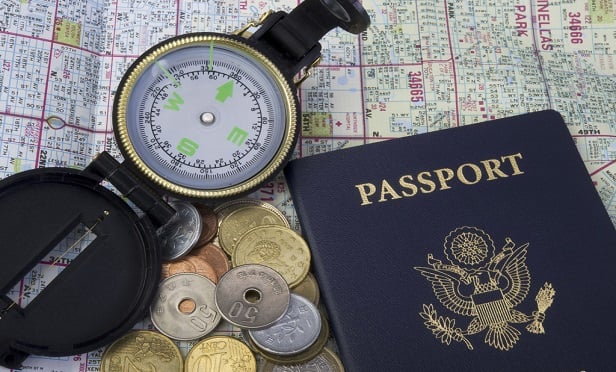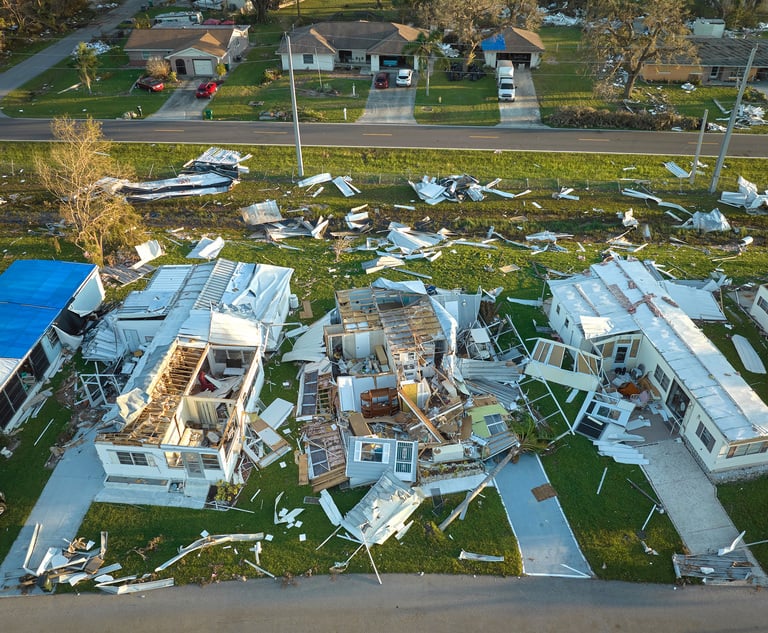 While global hot spots like Paris andTokyo remain popular destinations, travelers are increasinglychoosing off-the-beaten path destinations as their vacations ofchoice. (Photo: W. Scott/Fotolia)
While global hot spots like Paris andTokyo remain popular destinations, travelers are increasinglychoosing off-the-beaten path destinations as their vacations ofchoice. (Photo: W. Scott/Fotolia)
The most popular form of entertainment for high-net-worth clients is travel, especiallyafter they stop working. No matter where they go, however, travelincludes some element of risk. Although most associate that riskwith violence, travelers are much more likely to run into exposuresof their own making — whether it's an unexpected issue back home orunknowingly exposing personally identifiable information.
|Vacation hot spots
If your clients could go anywhere in the world, do you knowwhere they would go? And how they would get there — by plane, tourbus or cruise ship?
|According to AirBnB, global hot spots like Paris and Tokyo remainpopular destinations, but travelers are increasingly choosingoff-the-beaten path destinations as their vacations of choice. Someare traveling with well-established tour companies but others areventuring off on their own or with more local, less-well-knowngroups.
|Bookings are up by more than 250% in Da Nang, Vietnam, forexample, as well as more than 200% in Matinhos and Guarapari,Brazil, and 175% in Zagreb, Croatia.
|As your clients prepare for the summer travel season, here's what you needto know in order to protect them.
|Out of sight, not out of mind
When on vacation, the worries of everyday life should be faraway. Nevertheless, failure to take certain actions beforedeparture can end up hitting clients like a literal beach wave.
|According to a 2017 study by Chubb on home protection behaviors, the majority ofAmericans lock their windows (85%) and deadbolt their doors (77%)before heading out on vacation. Just 22%, on the other hand, shutoff the water main.
|Why does this matter? Many clients incorrectly assume that theft is themost common and costliest form of property damage, especiallywhile their homes are sitting empty. It's neither. Water leaksshould instead be their primary concern as data from the InsuranceInformation Institute suggests that water leaks occur four timesmore frequently than theft claims. Additionally, the same datashows an average water-related loss costs more than $8,800, ascompared to $3,990 for theft.
|More concerning is the fact that the time between when a leak occurs and when it'sdiscovered directly impacts the severity of water damage. Forclients on vacation — even for a long weekend — this makes themvulnerable.
|So how can you help your clients keep their everyday worries atbay while on vacation? Here are some tips:
- Insist that they turn off their main water supply beforetraveling.
- Advise they check for any leaks prior to departure.
- Encourage them to ask a trusted neighbor or friend to stay orcheck in on their home while away.
- Counsel them to install a water shut-off device, if one isn'talready in place. If it is, remind clients to replace all batteriesand set the device to “away mode” before leaving.
Handle with care
Although agents and brokers should always advise that clientsleave their jewelry at home, there are ways to help keep valuablessafe(ish). Start by ensuring your clients have worldwide coveragefor valuable articles and no deductibles for most causes of loss.This assumes they've already taken the important step of purchasinga valuable articles policy, as opposed to solely relying on theirhomeowners' policy, which often has a $5,000 cap on valuables.
|Beyond ensuring they have the right policy in place, the safety and security of valuable items islargely dependent on client behavior. In other words, help themmake smart choices. Clients should never pack their jewelry inchecked luggage, for instance. Instead, they should keep it in acarryon — ideally one that they will have on them the wholeflight.
|Upon arrival, encourage your clients to keep their jewelry inthe hotel's main safe. Individual room safes are easily accessibleto hotel employees and codes can be overridden. Jewelry shouldremain in the hotel's main safe unless clients are physicallywearing it. That means no putting it by the nightstand andreturning it to the safe in the morning. While it should go withoutsaying, remind clients that they should avoid heading to the beachor pool when wearing their jewelry.
|Live in the moment
Clients might want to share pictures of the historical landmarksthey're visiting or white sand beaches they're relaxing on, butposting to Facebook, Twitter, Instagram or another social mediasite puts them at risk.
|The concern is three-fold. First, they're alerting local thieveswho might be monitoring popular hashtags or location “check-ins” onsocial media that naïve tourists are nearby. Potentially moreconcerning, however, is that it could alert criminals back homethat their property is vacant. (Even though I mentioned water leaksare more common than theft above, this behavior could certainly tipthe scale!)
|Finally, if a client uses an unsecure Wi-Fi network, which arecommon at hotels, bars, restaurants and other tourist destinationsabroad, hackers can gain access to a treasure trove ofpersonal information. Reminding your clients that vacation is atime to relax and subsequently “unplug” is the best thing you cando to help keep them safe.
|The concern doesn't end when clients power down theirsmartphones, unfortunately. Payments and cash withdrawals also present ripeopportunity for identity thieves.
|Whenever possible, encourage your clients to pay for vacationpurchases, including meals, lodging and excursions, with cash theybrought from home. If they must pay with a card, credit cards arepreferable to debit cards, as the latter link directly to clientbank accounts.
|As clients prepare to make the most of summer travel, don't letan unexpected accident or mistake detour their plans. Take thesesteps ahead of time and you'll ensure that your clients do whatthey're looking forward to most — relaxing.
|Annmarie Camp ([email protected]) is executive vicepresident, sales and distribution leader at Chubb Personal RiskServices.
|See also:
|6 scenarios that travel insurance won'tcover
||Want to continue reading?
Become a Free PropertyCasualty360 Digital Reader
Your access to unlimited PropertyCasualty360 content isn’t changing.
Once you are an ALM digital member, you’ll receive:
- All PropertyCasualty360.com news coverage, best practices, and in-depth analysis.
- Educational webcasts, resources from industry leaders, and informative newsletters.
- Other award-winning websites including BenefitsPRO.com and ThinkAdvisor.com.
Already have an account? Sign In
© 2024 ALM Global, LLC, All Rights Reserved. Request academic re-use from www.copyright.com. All other uses, submit a request to [email protected]. For more information visit Asset & Logo Licensing.








